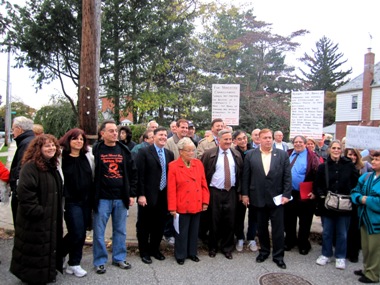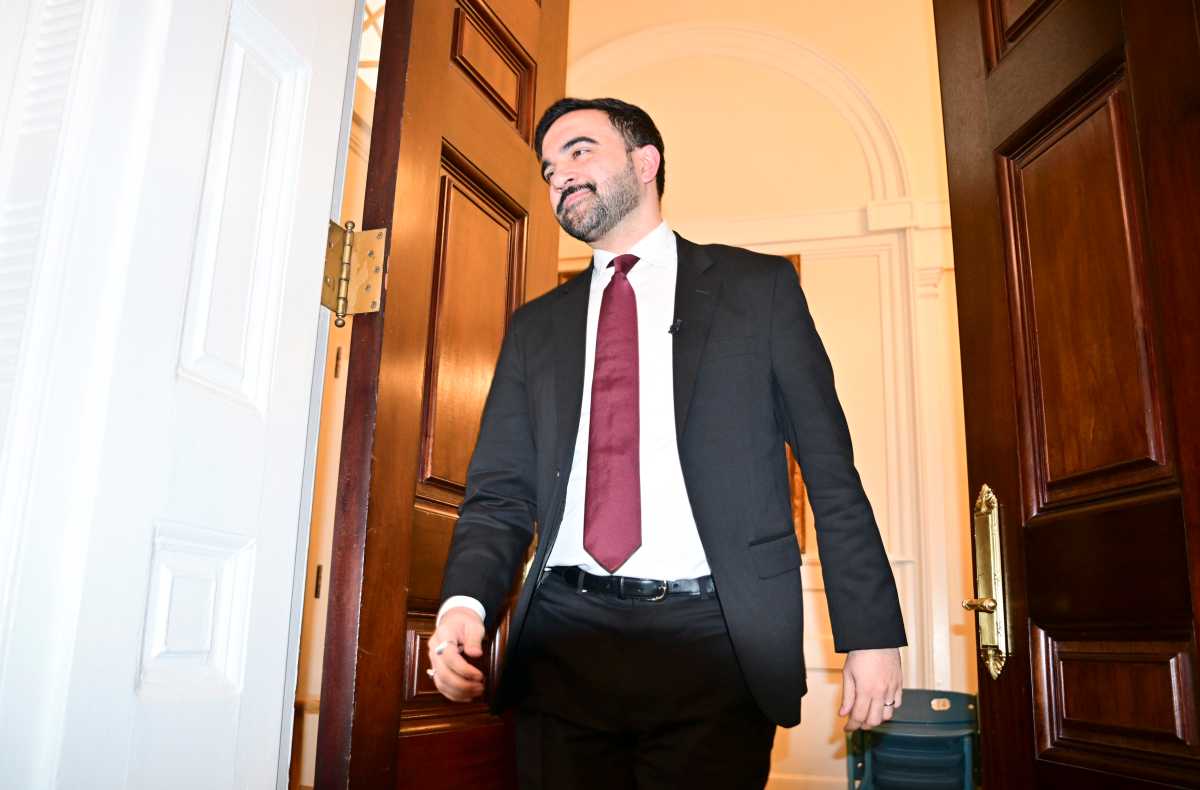Elected officials headlined a press conference to call on reform to the City’s Board of Standards Appeals (BSA), the unelected body that grants zoning variances.
On Monday, October 31, Councilmembers Dan Halloran and Mark Weprin spoke in front of 50-20 216th Street in Bayside Hills, where a developer was granted a variance to build a two-bedroom home on a lot that is zoned R2A for low-rise, single-family homes. This building will ignore the back and side yard requirements that are the hallmarks of R2A zoning and will open the door for more overdevelopment in low-density areas, they say.
The corner lot on 216th Street was purchased two years ago by Chapel Rock Realty, a developer, and then divided into two zoning lots. The developer rents the existing home and will rent the new home if the project moves forward.
Halloran has introduced two pieces of legislation, which Weprin is co-sponsoring, that would empower the community and elected leaders on all levels of city government. Variances must be approved by the Board of Standards and Appeals with advisory input from both the community board and the Borough President.
In the Bayside Hills case, both the community board and Borough President advised against granting this variance.
“Residents should have the right to appeal decisions by the Board of Standards and Appeals to the City Council when they believe a wrong has been committed,” Weprin said.
The first bill would give the community board and Borough President the power to appeal decisions of the BSA. If either opposed a variance application that was later passed by the BSA, the appeal would be heard by the full City Council, which would then vote on whether to grant the variance. As the law currently stands, the decision of the BSA is final.
The second bill is aimed at ensuring that commercial properties abide by variances that they are granted. Presently, there is no penalty to a property operating with an expired variance. This is a loophole and leaves both the community and the community board virtually powerless.
The new law would require the BSA to notify the property owner that they must apply for a new variance six months before the current variance expires. After six months operating without the variance, the BSA would have the power to issue fines. This gives owners a one-year period to get their paperwork in order, apply for a new variance and go before both the community board and the Borough President, thus allowing input to the process.
“Our city’s charter put the Council, not an unelected board, in charge of land use decisions,” said Halloran. “These laws would give the land use authority in New York City back to the City Council, and would increase the vital role that the community board plays in the process.”
Halloran and Weprin are each members of the City Council’s Land Use Committee, and Weprin chairs the Subcommittee on Zoning and Franchises. Both bills have bi-partisan support and are co-sponsored by City Council Majority Leader Joel Rivera of the Bronx and Minority Leader James Oddo of Staten Island.
Rally to reform zoning variances






























